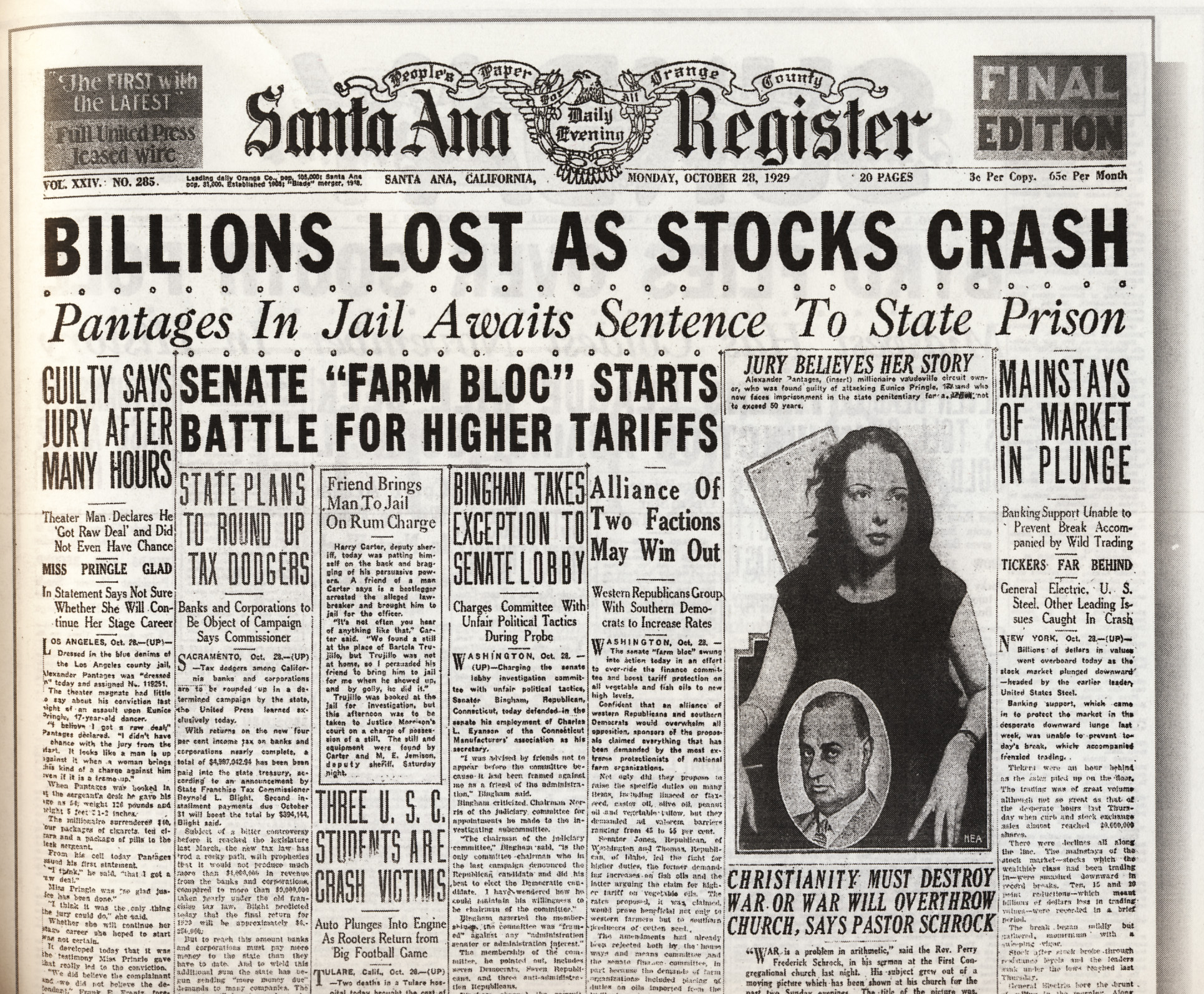The Wall Street Crash
Since the end of the immediate post-War depression in US financial markets, occurring in 1922, share prices rose dramatically. Naturally this encouraged a speculative boom and by 1929 the financial history of the US had never been more hay-wire. Nearly ten million investors, many hardly knowing where Wall Street was, bought shares not for income but to sell for a quick profit. Not only that, but they bought without paying cash, using ‘credit’ or ‘on margin’. It was bound to head for disaster. (more…)



